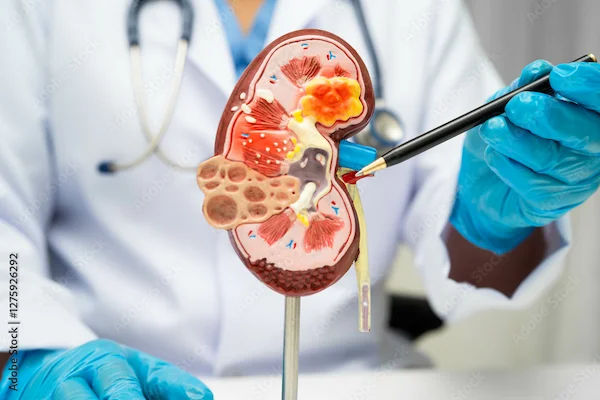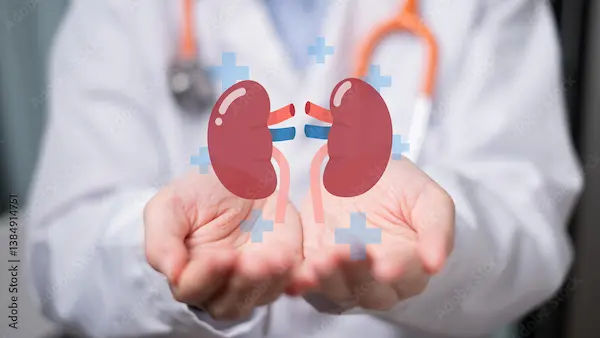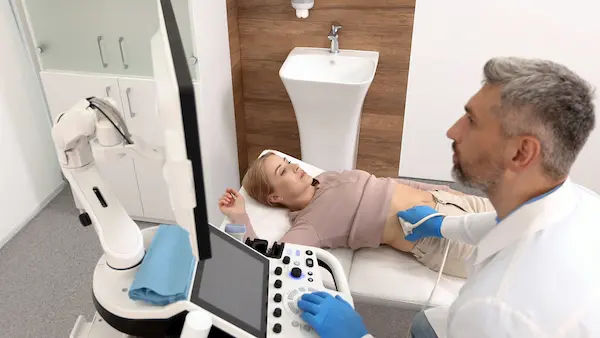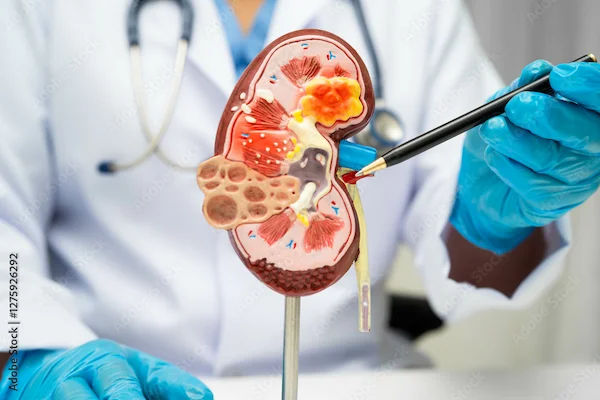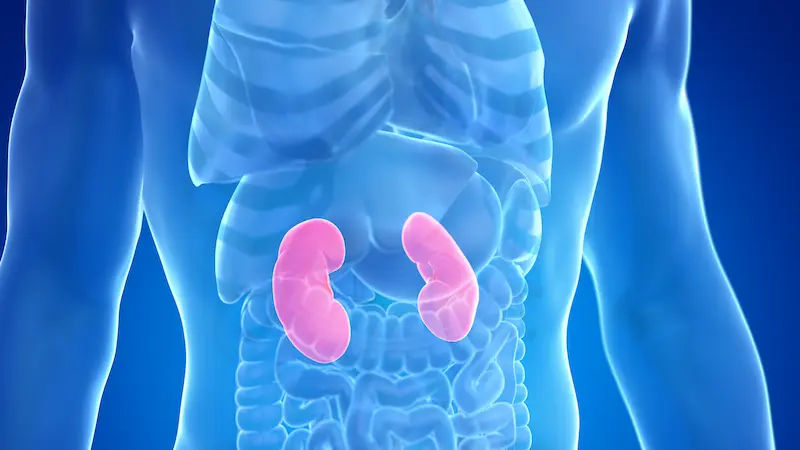Your Ultimate Guide to Kidney Health: How to Protect Your Vital Filters
Know about your kidneys, why it's vital to keep them healthy, eight ways by which you can protect your kidneys, and essential functions of the kidneys.

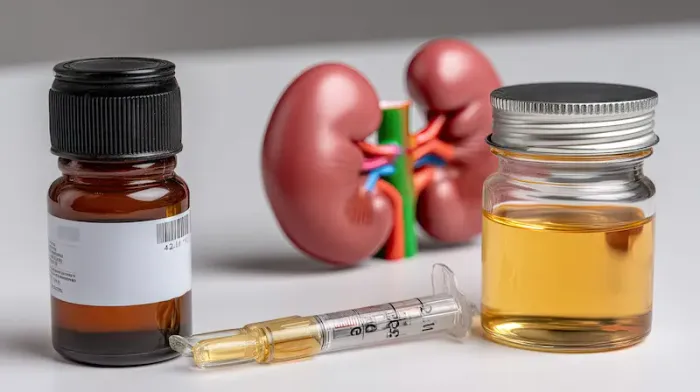
Introduction
We often take them for granted, but our kidneys are silent workhorses, performing a life-sustaining job 24/7. These two bean-shaped organs, each no larger than your fist, filter all the blood in your body every 30 minutes. They remove waste, balance fluids, regulate blood pressure, and produce hormones for red blood cells and bone health. Yet, kidney disease is often called a "silent killer" because symptoms typically don't appear until significant, irreversible damage has occurred. The good news? Protecting your kidneys is largely within your control. This comprehensive guide will walk you through the essential steps—from daily habits to crucial medical check-ups to ensure your kidneys stay healthy for a lifetime.
Why Kidney Protection is Non-Negotiable
Understanding the critical roles your kidneys play is the first step toward motivating their protection. They are not just simple filters; they are sophisticated regulatory centres.
What Your Kidneys Actually Do (Beyond Making Urine)
While waste removal is a primary function, your kidneys are multitasking marvels. They:
1. Detoxify Your Blood: They filter out urea, creatinine, and other toxins, excreting them through urine.
2. Balance Fluids and Electrolytes: They ensure your body has the right amount of water, sodium, potassium, and phosphorus, which is crucial for nerve and muscle function.
3. Regulate Blood Pressure: They release an enzyme called renin, which helps control blood pressure by managing blood vessel constriction and fluid balance.
4. Support Bone Health: They activate Vitamin D, which is essential for calcium absorption and strong bones.
5. Stimulate Red Blood Cell Production: They produce erythropoietin (EPO), a hormone that tells your bone marrow to make red blood cells.
When your kidneys are damaged, all these systems can falter, leading to a cascade of health issues.
Consult a Top General Practitioner for Personalised Advice
The Silent Progression of Kidney Disease
One of the biggest challenges in kidney health is its asymptomatic early stages. You can lose up to 90% of your kidney function before experiencing severe symptoms like nausea, swelling, or fatigue. This is why proactive measures are not just beneficial—they are essential. Early detection through simple tests can slow or even halt the progression of kidney disease.
The 8 Pillars of Proactive Kidney Protection
Protecting your kidneys hinges on a combination of smart daily choices and managing underlying health conditions. Here are the eight foundational pillars.
Pillar 1: Hydrate Smartly, Not Excessively
1. Staying well-hydrated helps your kidneys clear sodium, urea, and toxins from the body. Dehydration can lead to acute kidney injury and increase the risk of chronic kidney disease. However, the old "eight glasses a day" rule is a guideline. Your needs depend on climate, activity level, and overall health.
2. Unique Insight: Pay attention to your urine colour. Aim for a light straw or pale yellow colour. Dark yellow urine often indicates a need for more fluids. Contrary to popular belief, over-hydration (hyponatremia) is rare in healthy individuals but can be a concern for those with specific health conditions.
Pillar 2: Become the Master of Your Blood Pressure
1. High blood pressure (hypertension) is a leading cause of kidney damage. It damages the delicate blood vessels within the kidneys, impairing their filtering ability.
2. Actionable Tip: The American Heart Association recommends a blood pressure goal of less than 120/80 mm Hg. Regularly monitor your blood pressure at home, reduce sodium intake, manage stress, and adhere to any prescribed medications. If your readings are consistently high, it's crucial to seek medical advice.
Pillar 3: Keep Your Blood Sugar in Check
1. Diabetes is the number one cause of kidney failure. High blood sugar levels damage the kidneys' filtering units (nephrons) over time. If you have diabetes, tight glycemic control is your best defense against kidney complications.
2. Data Point: According to the National Kidney Foundation, about 1 in 3 adults with diabetes has chronic kidney disease. Regular monitoring of your HbA1c levels is vital. Apollo24|7 offers convenient home collection for tests like HbA1c, making it easier to stay on top of your numbers.
Pillar 4: Adopt a Kidney-Friendly Diet
What you eat directly impacts your kidneys' workload. A balanced diet is key to improving kidney function naturally.
Foods to Embrace: Fruits, Veggies, and Whole Grains
Focus on a diet rich in fresh fruits, vegetables, whole grains, and lean proteins. These foods are generally lower in sodium and provide essential antioxidants and fibre that support overall health.
Foods to Limit: Sodium, Phosphorus, and Potassium
If you already have kidney impairment, monitoring specific minerals is critical.
1. Sodium: Found in processed foods, canned goods, and table salt. High intake raises blood pressure.
2. Phosphorus: Found in dairy, nuts, and colas. Damaged kidneys can't remove it, leading to bone and heart problems.
3. Potassium: Found in bananas, oranges, and potatoes. High levels can cause dangerous heart arrhythmias.
Pillar 5: Use Medications Wisely
The Hidden Danger of Common Painkillers
Nonsteroidal anti-inflammatory drugs (NSAIDs) like ibuprofen and naproxen, while effective for pain, can cause kidney damage, especially with frequent or long-term use. They reduce blood flow to the kidneys. Always use the lowest effective dose for the shortest possible time. If you need pain relief regularly, consult your doctor about kidney-safe alternatives.
Pillar 6: Maintain a Healthy Weight
Obesity increases the risk of diabetes and hypertension, both major kidney stressors. It also directly increases the kidneys' filtration workload, a condition called hyperfiltration, which can lead to long-term damage. Losing even a small amount of weight can significantly reduce this risk.
Pillar 7: Quit Smoking and Limit Alcohol
Smoking damages blood vessels, decreasing blood flow to the kidneys. It also increases the risk of kidney cancer. Excessive alcohol consumption can cause sudden spikes in blood pressure and add to the kidneys' detoxification workload.
Pillar 8: Get Moving with Regular Exercise
Regular physical activity helps control blood pressure, blood sugar, and body weight—all of which benefit your kidneys. Aim for at least 150 minutes of moderate-intensity exercise per week.
Beyond Lifestyle: The Importance of Medical Vigilance
Even with a perfect lifestyle, some risk factors are beyond your control. This makes medical vigilance paramount.
Know Your Risk Factors for Kidney Problems
You are at higher risk if you have:
1. Diabetes
2. High blood pressure
3. A family history of kidney disease
4. Heart disease
5. Are over 60 years old
If you fall into any of these categories, you should be especially proactive about screening.
Essential Kidney Function Tests You Should Know About
Two simple tests can detect early signs of kidney disease:
1. A Urine Test (ACR): Checks for albumin, a protein that shouldn't be in the urine. Its presence is an early sign of kidney damage.
2. A Blood Test (eGFR): Estimates your glomerular filtration rate, showing how well your kidneys are filtering blood.
If you have risk factors or experience unexplained symptoms like persistent swelling or fatigue, consult a doctor online with Apollo24|7 for further evaluation and to discuss whether these tests are right for you.
Conclusion
Protecting your kidneys is a lifelong commitment that pays dividends for your overall health. By integrating these pillars of smart hydration, blood pressure and sugar management, a balanced diet, mindful medication use, and regular exercise into your daily life, you empower your body's natural filtration system to work optimally. Remember, knowledge and proactive care are your strongest allies. Start today by assessing your habits and scheduling a conversation with your healthcare provider about your kidney health.
Consult a Top General Practitioner for Personalised Advice
Consult a Top General Practitioner for Personalised Advice

Dr. Vivek D
General Physician
4 Years • MBBS
Bengaluru
PRESTIGE SHANTHINIKETAN - SOCIETY CLINIC, Bengaluru

Dr Syed Mateen Pasha
General Physician
2 Years • MBBS
Bengaluru
PRESTIGE SHANTHINIKETAN - SOCIETY CLINIC, Bengaluru

Dr Bhargav Vuppumalla
General Physician/ Internal Medicine Specialist
5 Years • MBBS MD GENERAL MEDICINE
Bengaluru
Apollo Medical Center, Marathahalli, Bengaluru

Dr. M L Ezhilarasan
General Practitioner
6 Years • MBBS
Visakhapatnam
Apollo 24|7 Clinic - Andhra Pradesh, Visakhapatnam

Dr. Ritesh Motghare
General Practitioner
18 Years • MBBS PGCDM
Nagpur
HEALTH CENTRE VNIT NAGPUR, Nagpur
Consult a Top General Practitioner for Personalised Advice

Dr. Vivek D
General Physician
4 Years • MBBS
Bengaluru
PRESTIGE SHANTHINIKETAN - SOCIETY CLINIC, Bengaluru

Dr Syed Mateen Pasha
General Physician
2 Years • MBBS
Bengaluru
PRESTIGE SHANTHINIKETAN - SOCIETY CLINIC, Bengaluru

Dr Bhargav Vuppumalla
General Physician/ Internal Medicine Specialist
5 Years • MBBS MD GENERAL MEDICINE
Bengaluru
Apollo Medical Center, Marathahalli, Bengaluru

Dr. M L Ezhilarasan
General Practitioner
6 Years • MBBS
Visakhapatnam
Apollo 24|7 Clinic - Andhra Pradesh, Visakhapatnam

Dr. Ritesh Motghare
General Practitioner
18 Years • MBBS PGCDM
Nagpur
HEALTH CENTRE VNIT NAGPUR, Nagpur
More articles from Kidney Disease
Frequently Asked Questions
1. What are the early signs of kidney disease?
Early signs are subtle but can include changes in urination (frequency, foaminess, blood), persistent puffiness around the eyes, swollen ankles and feet, and unexplained fatigue or difficulty concentrating.
2. Can damaged kidneys heal?
The goal is to prevent further damage. While kidneys have a limited ability to repair themselves, chronic damage is often irreversible. However, early detection and intervention can slow or stop the progression of the disease, preserving existing function.
3. What is a normal GFR level?
A normal glomerular filtration rate (GFR) is 90 or above. A GFR below 60 for three months or more may indicate chronic kidney disease. It's best to discuss your specific results with a doctor.
4. Are protein shakes bad for your kidneys?
For healthy individuals, moderate protein intake is generally safe. However, excessively high-protein diets can increase the kidneys' workload. If you have pre-existing kidney issues, high protein intake can be harmful. Consult a doctor or dietitian.
5. How much water should I drink to flush my kidneys?
There's no one-size-fits-all amount. The '8 glasses' rule is a good starting point, but listen to your body. Your urine colour is the best indicator—aim for light yellow. If you have heart or kidney conditions, your fluid intake may need to be restricted, so follow your doctor's advice.
